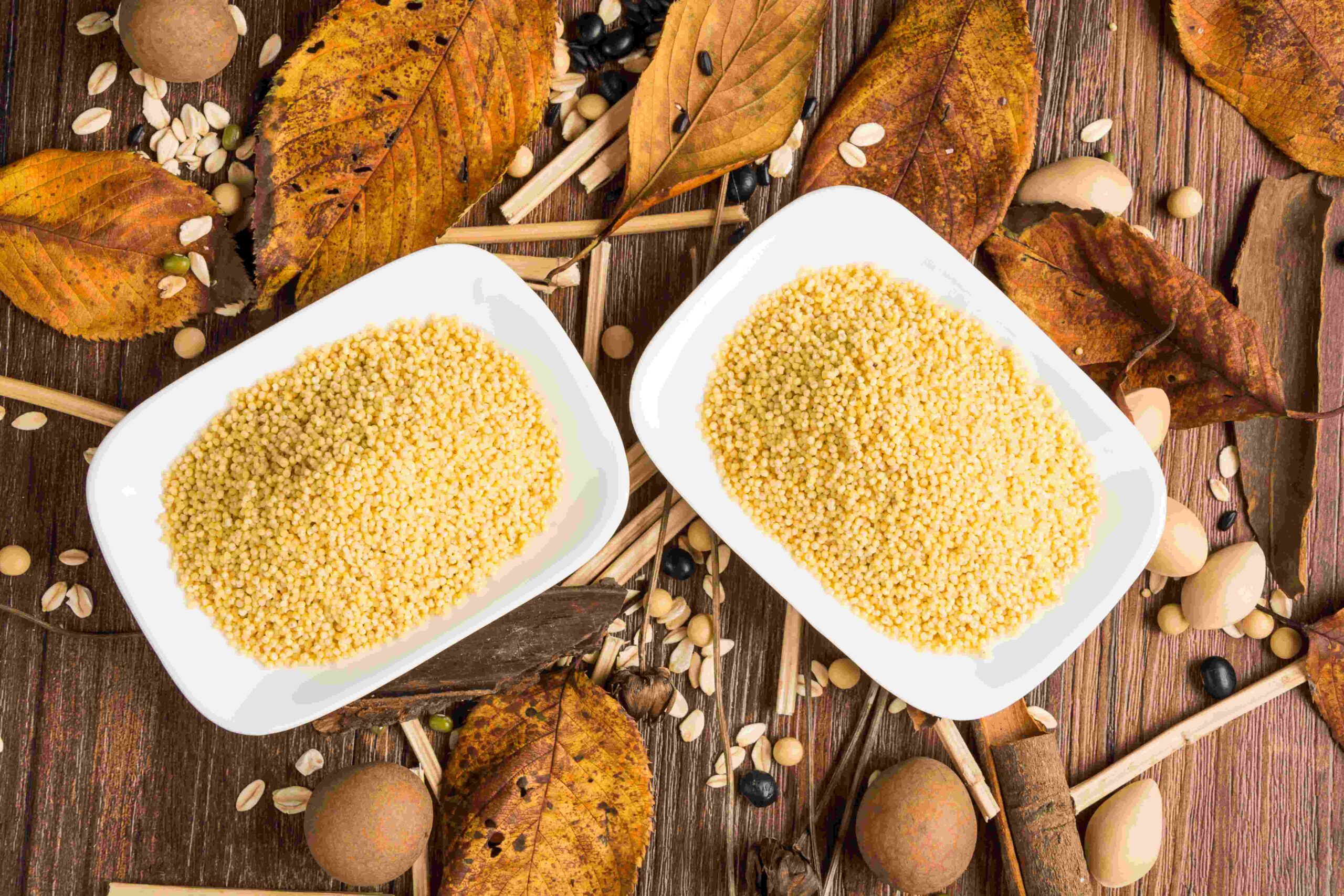New studies revealed that consuming millet can reduce the risk of cardiovascular diseases. Many emerging studies are focusing on understanding the connection between millet and heart health.
The same study revealed that millets can reduce total cholesterol by 8% and can contribute to a decrease in BMI by almost 7%. It can further help in reducing blood pressure in diastolic blood pressure by about 5%. All of these factors can cumulatively lower the risk of heart disease.
Today, heart disease is the number one cause of death globally. Growing obesity, increased incidences of diabetes, and rising blood pressure are all contributors to increased risk of heart attacks. Researchers opine that an unhealthy diet is the biggest contributor to the rising incidence of cardiovascular disease and diabetes.
As such, health enthusiasts and fitness experts are on a constant lookout for healthy alternatives to their regular bowl of rice. This brought Millets back into the limelight. Millets are rich in nutritional content. They are loaded with proteins, minerals, vitamins, and antioxidants.
Several studies have confirmed that consuming millet can help reduce the risk of type-2 diabetes.
Millets vs. Rice or Wheat
The nutritional content of millet is about three to five times higher than rice and wheat.
Millets contain calcium, iron, potassium, magnesium, zinc, and vitamins. In addition to that, millets are also rich in unsaturated fatty acids. It contains about 2 to 10 times higher unsaturated fatty acids than refined wheat.
There are different types of millets and all kinds of millets are more advantageous than milled rice and whole grain wheat. These healthy grains can play a very significant role in fighting obesity among children, adolescents, and adults.
Millets and Heart Health: 5 Reasons why you must add it to your diet
Millet can help control diabetes
These healthy grains have a low glycemic index. This can help in regularizing your blood sugar levels and promote insulin sensitivity. This is very helpful for diabetic patients as millets do not cause a sudden spike in blood sugar levels, help increase insulin sensitivity, and control your sugar levels.
In addition to that, millets are a storehouse of nutrients along with being gluten-free. They are rich in dietary fibre, proteins, amino acids, vitamins, and minerals. Switching to millet can also help in reducing the risk of type 2 diabetes.
Millets aid in weight loss
Obesity is one of the biggest contributors to heart disease. Studies say that switching rice for millet three to four days a week can help in weight loss. It can reduce the accumulation of fat and improve gut health. Several studies have shown that millet can help in lowering BMI in obese people.
By maintaining your BMI index you can stay protected against most of the chronic diseases that can increase the risk of heart disease. Millets are also rich in fibre which helps in keeping you full for a long. Thus, curbing your hunger pangs.
Millets are extremely friendly for your heart
All types of millet are excellent sources of antioxidants. Antioxidants can help in lowering the risk of heart disease and stroke. They are proven to reduce LDL cholesterol levels, decrease triglycerides, and control your total cholesterol.
The rich nutrients in millet, thin the blood to prevent blood platelet clumping. This reduces the risk of stroke and coronary artery disorder. Millets also contain magnesium and vitamin B3, which can help regulate your heart rhythm.
Millets can help improve your mood
All types of millet contain a high concentration of amino acids, which can help reduce the symptoms of depression and anxiety. In addition to that, millets also aid in improving digestion which has a direct link with your mood.
Digestive issues like constipation or hyperacidity are directly linked to your mood. Indigestion and bloating can disrupt your sleep and result in stress, grumpiness, and a bad mood. A bad mood is also directly related to an increased risk of heart disease.
Millets help reduce oxidative stress
Oxidative stress is the root cause of various chronic conditions including diabetes and increased heart risk. Millets are rich in antioxidants which can help reduce the damage caused by oxidative stress.
How to add millet to your diet?
- Millet upma – You can make a healthy and filling upma with foxtail millets. This is an excellent choice of breakfast that will keep you fuller for longer. You can increase its nutrient quotient by adding chopped vegetables to your upma.
- Millet Smoothie – Have you tried a millet smoothie yet? It’s not only healthy but also super easy to make. Roast Ragi and add soaked dates, almonds and other dried fruits according to your taste. Blend it smooth and have it chilled.
- Millet Pancakes – One of the easiest and healthiest ways to have millet in your lunch or dinner is to have it in the form of pancakes. You can use millet flour and add healthy seeds, green leaves, or other vegetables to your pancakes.
- Millet Dosas – You can make a mix using different types of millets. Use this mix to make dosa and serve it with chutney and sambhar. This is also an excellent meal option for breakfast or dinner.
Your Takeaway: Millets and heart health
Millets are not new to the Indian diet. In fact, it was an ancient staple, that’s still predominantly used in many rural parts of India. However, with the rising body of scientific studies supporting the benefits of millet in regulating heart health, they are making a huge comeback.
In conclusion, adding millet to your regular diet can help improve your heart health. It reduces the levels of bad cholesterol, supports weight loss, maintains sugar levels, and regulates blood pressure. Millets not only protect your heart but also combat a cluster of chronic diseases.
Add this healthy grain to your diet and make sure to give it to your growing children!

